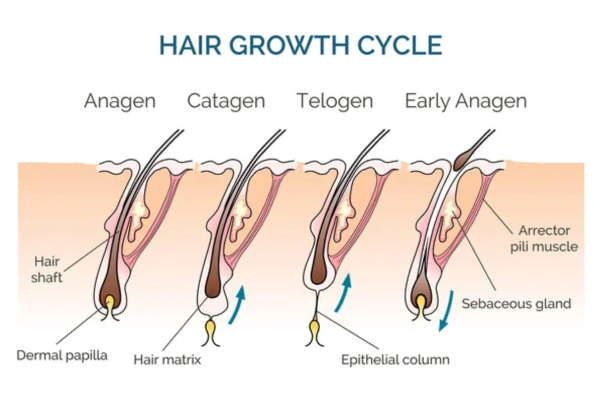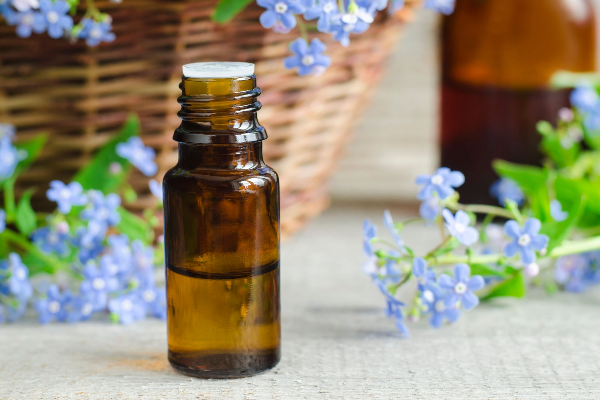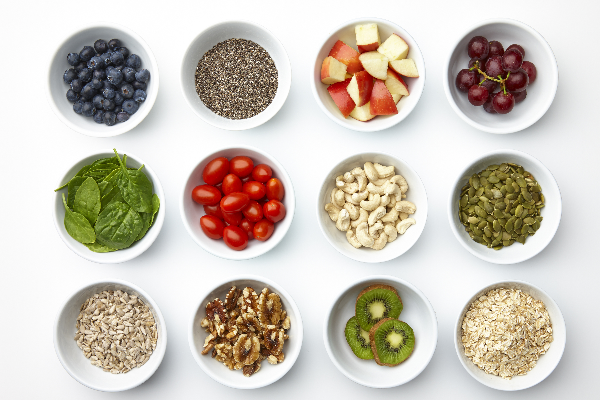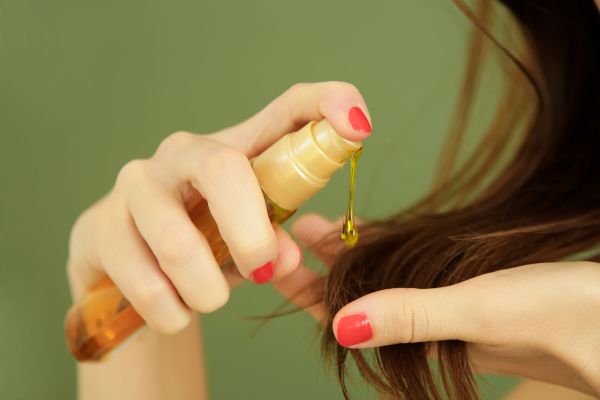Hair loss is a common concern for many women, often leaving them searching for solutions to restore their confidence and hair health. Whether it’s due to hormonal changes, stress, or nutritional deficiencies, hair loss can feel overwhelming. However, the good news is that natural remedies for hair loss offer effective and holistic solutions to support healthy regrowth.
By addressing the root causes and incorporating small changes into your routine, you can take control of your hair health. In this article, we’ll explore essential oils, scalp massages, lifestyle adjustments, and nutritional support to help you manage hair loss and promote stronger, healthier locks.
Understanding the Causes of Hair Loss in Women
1. Hormonal Imbalances
Hormonal fluctuations are one of the leading causes of hair loss in women. When hormones are out of balance, the hair growth cycle can be disrupted, leading to thinning or shedding. Furthermore, specific life stages often exacerbate these imbalances.

- Menopause: As estrogen levels drop, hair may become thinner, especially around the crown and parting.
- Pregnancy: Postpartum hair loss is common as hormones stabilize after childbirth. Nevertheless, this condition is typically temporary.
- Thyroid Disorders: Both underactive (hypothyroidism) and overactive (hyperthyroidism) thyroid glands can cause hair thinning or patchy loss.
Pro Tip: Learn more about how hormones affect hair health on the American Academy of Dermatology’s website.
2. Nutritional Deficiencies
A diet lacking in essential nutrients can weaken hair follicles and slow growth. For example, deficiencies in key vitamins and minerals can contribute to hair loss, such as:
- Iron: Essential for oxygenating hair follicles. Low levels can result in brittle, thinning hair.
- Vitamin D: Known as the “sunshine vitamin,” it plays a key role in stimulating hair follicles and supporting growth.
- Biotin: This B-vitamin promotes the production of keratin, a protein that strengthens hair.
Quick Fix: Incorporate iron-rich foods (like spinach and lentils), vitamin D sources (such as salmon or fortified foods), and biotin-packed snacks (like almonds and eggs) into your diet.
3. Stress and Emotional Factors
Stress directly impacts the health of your hair. Emotional stress, for instance, can push hair follicles into a resting phase, leading to noticeable shedding. Additionally, mental health challenges often exacerbate this condition.
- Anxiety and Depression: Chronic stress can trigger conditions like telogen effluvium, where hair falls out in clumps.
- Traumatic Events: Hair loss can also follow life-changing events like surgery, loss, or illness.
Solution: Prioritize stress-reducing activities, such as yoga, meditation, or therapy, to minimize the impact on your hair.
Natural Remedies for Hair Loss
1. Essential Oils
Nature offers powerful tools to combat hair loss, and essential oils are among the most effective. These concentrated oils not only support hair regrowth but also soothe the scalp.
- Rosemary Oil: Clinically proven to stimulate hair growth by improving circulation.
- Peppermint Oil: Known for its cooling sensation, it helps open up hair follicles and encourage regrowth.

- Lavender Oil: Its calming properties reduce stress while supporting scalp health.
How to Use: Mix 3-5 drops of essential oil with a carrier oil like coconut or argan oil. Massage into the scalp and leave it on for 30 minutes before rinsing.
2. Scalp Massages
Simple and cost-effective, scalp massages promote hair health by improving blood circulation to the roots. Moreover, this technique can be done anywhere, making it convenient for busy lifestyles.
- Benefits: Scalp massages deliver nutrients to hair follicles and help unclog blocked pores.
- Techniques: Use circular motions with your fingertips or try a scalp massager for deeper stimulation.
- Frequency: Incorporate massages 2-3 times a week for noticeable results.
Pro Tip: Combine scalp massages with essential oils for double the benefits.
3. Nutritional Supplements
When diet alone isn’t enough, supplements can fill in the gaps to support healthy hair. Therefore, adding targeted nutrients can strengthen hair from within.
- Biotin: Strengthens hair shafts and improves elasticity.
- Iron: Helps reduce thinning caused by anemia.
- Vitamin D: Boosts the hair’s natural growth cycle.
Lifestyle Changes to Support Hair Growth
1. Diet Modifications
The foundation of healthy hair starts with your plate. What you eat directly affects your hair’s strength, shine, and growth. Therefore, focusing on a balanced diet is critical.

- Protein-Rich Foods: Include lean meats, eggs, and beans to nourish hair follicles.
- Healthy Fats: Omega-3 fatty acids found in salmon, walnuts, and flaxseeds can improve scalp health.
- Hydration: Drink at least 8 glasses of water daily to maintain scalp hydration and elasticity.
Bonus Tip: Additionally, prepare meals with hair-friendly ingredients, such as avocados, berries, and spinach.
2. Stress Management Techniques
Stress can wreak havoc on your hair, so managing it is key to reducing hair loss. Furthermore, these techniques can improve overall well-being.

- Exercise: Physical activity releases endorphins that counteract stress hormones.
- Meditation: Just 10 minutes a day can calm your mind and improve overall health.
- Journaling: Writing down your thoughts can help you process emotions and reduce mental strain.
Actionable Advice: Pair stress management with your favorite hobbies, like gardening or painting, for added relaxation.
3. Hair Care Practices
Small adjustments to your routine can make a big difference in preventing hair loss. For example, avoiding harsh products and heat styling can significantly improve hair health over time.

- Avoid Heat Styling: Minimize blow-drying and straightening to prevent breakage.
- Gentle Products: Use shampoos free of sulfates, parabens, and harsh chemicals.
- Washing Frequency: Wash your hair 2-3 times a week to preserve natural oils.
Expert Tip: Therefore, sleep on a silk pillowcase to reduce friction and prevent hair breakage.
Hair loss in women doesn’t have to feel like a battle you can’t win. By understanding the root causes and embracing natural remedies for hair loss, you can support your hair’s health and regain confidence. Moreover, whether it’s using essential oils, making dietary changes, or practicing stress management, these holistic approaches can make a lasting difference.
Remember, consistency is key. While natural remedies take time to show results, their benefits are long-lasting and sustainable. If hair loss persists or worsens, consult a healthcare provider to identify underlying conditions. With the right approach, your journey to healthier, fuller hair starts today.




